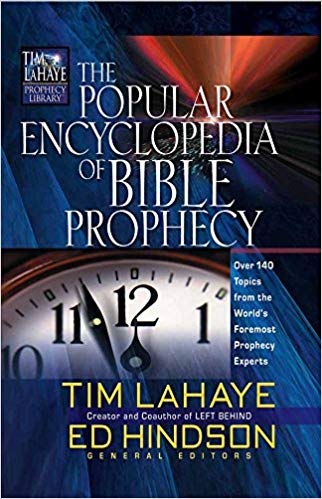ESCHATOLOGY OF ACTS Part II

THE POPULAR ENCYCLOPEDIA OF BIBLE PROPHECY
ESCHATOLOGY OF ACTS Part II
AMOS’ KINGDOM PROPHECY AND
THE EARLY CHURCH
At the Jerusalem Council of Acts 15, James, the pastor at Jerusalem, quotes the Old Testament prophet Amos (9:11-12) to show that the salvation of many Gentiles during the days of the early church should not be surprising
because the Old Testament prophets foretold it (Acts 15:15-17). Amos proclaims that these Gentiles will enter into God’
kingdom. This leads some to believe that the church, therefore, is the fulfillment of the Old Testament promise of the kingdom of God.
James, however, does not say that Amos’ prophecy is being fulfilled during his time in the early church. In fact, the evidence shows that James is saying that the prophecy will not be fulfilled until a later time, when Jesus
returns to earth after this present age. First, James says that “the words of the prophets agree” with what is happening in the early church (Acts 15:15). What God will do in the future millennial kingdom, that is, saving and including many Gentiles, He is already doing in the early church. James has
carefully chosen the word “agree” rather than “fulfill.” The conversion of Gentiles in the days of the early church is not the fulfillment of this Old Testament prophecy, but it is in harmony with what God will also do in His
kingdom—He will include all nations. Second, James changes the words of the Amos prophecy from “on that day” to “after this” to show that he understands that the prophecy refers to a time “after this” time of the first century. It refers to the time of the future millennial era. Third, James adds the word “return” in his citation of this prophecy to allow for the fact that before Amos’ prophecy will be fulfilled, Christ must come a second time to earth to restore His kingdom. James says, “After this I will return and will rebuild the tabernacle of David, which has fallen down. I will rebuild its ruins, and I will set it up; so that the rest of mankind may seek the Lord, even all the Gentiles who are called by My name, says the Lord who does all these things” (Acts 15:16-17). These two changes are not due to textual variations, as some propose, but due to James’ interpretation.Therefore, James bears witness to the fact that the church is not the promised kingdom but that this kingdom follows (“after this”) this present church age.

